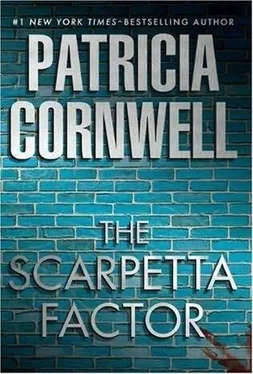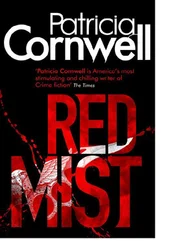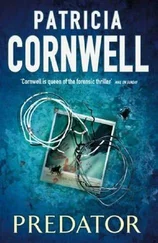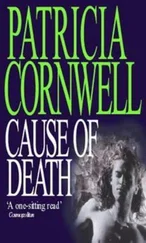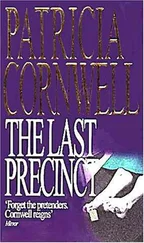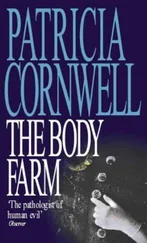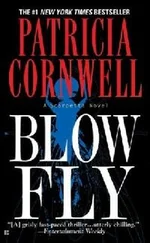“So, what’s your position with the Bureau?” Marino thought he should ask, since she was jerking him around and telling him what to do.
“At the moment I’m working with the Joint Bank Robbery Task Force. And I’m a principal coordinator for the National Center for the Analysis of Violent Crime,” she answered.
Joint Bank Robbery was a catchall task force, the oldest task force in the United States, comprising NYPD investigators and FBI agents who handled everything from bank robberies, kidnap-pings, and stalking to crimes on the high seas, such as sexual assaults on cruise ships and piracy. Marino wasn’t necessarily surprised the JBR Task Force might be involved in a case that the Feds had an interest in, but the National Center for the Analysis of Violent Crime? In other words, a coordinator with the Behavioral Analysis Unit. In other words, Quantico. Marino wasn’t expecting that, holy shit. SA Marty Lanier was what he still thought of as a profiler, the same thing Benton used to be. Marino understood a little better why she was being closemouthed over the phone. The FBI was onto something serious.
“You suggesting Quantico ’s gotten involved in the Central Park West situation?” Marino pushed his luck.
“I’ll see you later today” was her answer and how she ended the conversation.
Marino was just a few minutes away from Scarpetta’s building, in the low forties on Eighth Avenue, in the heart of Times Square. Illuminated billboards, vinyl banners, signage, and brilliant multicolored data-display screens reminded him of RTCC, and yellow cabs were rolling, but not many people were out, and Marino wondered what the day would bring. Would the public really panic and stay out of taxis because of Carley Crispin and her leak? He seriously doubted it. This was New York. The worst panic he’d ever observed here wasn’t even 9/11, it was the economy. It was what he’d been seeing for months, the terrorism on Wall Street, the disastrous financial losses and a chronic fear that it was only going to get worse. Not having two dimes to rub together was a lot more likely to do you in than some serial killer supposedly cruising around in a yellow cab. If you were friggin’ broke, you couldn’t afford a friggin’ cab and were a hell of a lot more worried about ending up a street person than getting whacked while jogging.
At Columbus Circle, the CNN marquee was on to other news that had nothing to do with Scarpetta and The Crispin Report, something about Pete Townshend and The Who on the ticker, bright red against the night. Maybe the FBI was calling an emergency meeting because Scarpetta supposedly had bashed the Bureau in public, had called profiling antiquated. Someone of her status making a statement like that was taken seriously and not easily dismissed. Even if she really hadn’t said it or had said it off the record but it was out of context and not what she meant.
Marino wondered what she’d really said and meant, then decided whatever the FBI was up to, it probably had not a damn thing to do with Bureau-bashing, which wasn’t new or unusual, anyway. Cops in particular bashed the Bureau all the time. Mostly out of jealousy. If cops really believed the criticisms they slung, they wouldn’t beg, borrow, and steal to get on task forces with the FBI or attend special training courses at Quantico. Something else had happened that was unrelated to bad publicity. He kept coming back to the same thing: It had to do with the tattoo, with the man in the FedEx cap. It was going to make Marino crazy that he had to wait for the details.
He parked behind a yellow SUV taxi, a hybrid, the newest thing, New York going green. He got out of his dirty, gas-guzzling Crown Vic and walked into the lobby, and Scarpetta was sitting on the couch, in a heavy shearling coat and boots, dressed for a morning that she assumed would include the range at Rodman’s Neck, which was on the water and always windy as hell and cold. Over her shoulder was the black nylon kit bag she routinely carried when she was working, a lot of essentials organized inside. Gloves, shoe covers, coveralls, a digital camera, basic medical supplies. Their lives were like that, never knowing where they might end up or what they were going to find and always feeling like they had to be ready. She had a look on her face, distracted, tired, but smiled the way she did when she was appreciative. She was grateful he’d come to help her out, and that made him feel good. She got up and met him at the door and they walked out together, down the steps, to the dark street.
“Where’s Benton?” Marino asked, opening the passenger door. “Be careful of your coat. The car’s dirty as hell. All the salt and crap on the road from the snow, no way to keep on top of it. Not like Florida, South Carolina, Virginia. Try finding a car wash, and what good does it do? One block later, it looks like I drove through a chalk quarry.” He was self-conscious again.
“I told him not to come,” Scarpetta said. “Not that he can help us with my BlackBerry, but not to Rodman’s Neck, either. There’s a lot going on. He’s got things to do.”
Marino didn’t ask her why or what. He didn’t let on how happy he was not to have Benton around, not to be subjected to him and his attitudes. Benton had never been friendly to Marino, not the entire twenty years they’d known each other. They’d never been pals, never socialized, never done a damn thing together. It wasn’t like knowing another cop, never had been. Benton didn’t fish or bowl or give a rat’s ass about motorcycles or trucks; the two of them had never hung out in the bar, trading stories about cases or women, the way guys talk. Truth was, the only thing Marino and Benton had in common was the Doc, and he tried to remember the last time he’d been alone with her. It felt really good to have her to himself. He was going to take care of her problem. Carley Crispin was toast.
Scarpetta said the same thing she always did: “Fasten your seat belt.”
He started the car and pulled on his shoulder harness, as much as he hated to strap himself in. One of those old habits, like smoking and drinking, that he might break but never forget or feel particularly good about. So what if he was better off. He couldn’t stand wearing a seat belt, and that wasn’t going to change, and he just hoped like hell he was never in a situation when he needed to bolt out of his car and oops, oh shit, still had the seat belt on and ended up dead. He wondered if that same special unit was still roaming around doing random checks on cops, out to nail someone’s ass for not having his belt on and get him grounded for six months.
“Come on. You must know of situations where these damn things end up killing someone,” he said to Scarpetta, who would know the honest answer if anyone did.
“What things?” she said as he pulled away from her building.
“Seat belts. You know, these vehicular straitjackets you’re always preaching about, Dr. Worst-Case Scenario. All those years in Richmond? They didn’t have cops-turned-snitches driving around, looking to get the rest of us in trouble for not having our seat belts on. No one cared, and I never wore one. Not once. Not even when you used to get in my car and start your nagging about all the different ways I might get hurt or die if I didn’t watch out.” It put him in a good mood to remember those days, to be driving with her, without Benton. “Remember that time I got in the shoot-out in Gilpin Court? If I hadn’t been able to bail out of the car, guess what would have happened?”
“It wasn’t your reflex to disengage a seat belt because you had a terrible habit,” she said. “And as I recall, you were chasing that particular drug dealer and not the other way around. I don’t believe your seat belt was a factor, whether it was fastened or not.”
Читать дальше
